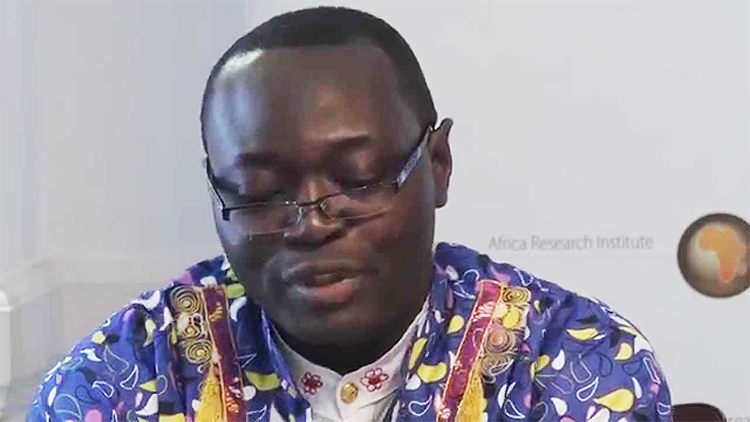News
Father Aslem Gbenga Adodo calls for practical support for African traditional medicine

A Catholic priest at Saint Bendict Monastery, Ewu-Esan, Edo State with over 25 years in herbal practice, Reverend Father Aslem Gbenga Adodo has called for sincere and practical support for African traditional medicine to aide better health care delivery both in Nigeria and on the continent stating that “there is a plant in African bush that can cure Covid-19.”
The Benedictine monk and founder of Nigeria’s first alternative medine and research laboratory enterprise, Pax Hebal Clinic and Research with over 100 staff made the comment at an international virtual summit with participants and speakers from Africa and other continents organsied by the Journalists International Forum For Migration (JIFORM) titled Migration: Remedies for Covid-19 and the Economy.
The President of JIFORM, Ajibola Abayomi, launded the contributions of the priest to quality health care delivery on the continent over the years and his impactful evangelism as preacher of divine message at the foremost catholic church.
Delivering a lecture titled Covid-19: Herbal Remedies As Alternative Health Care, Adodo queried that before the nation can reap benefits of African medine that “what is the level of investment in trado-herbal medine by the government? For long people have been innaudated with fear and propanganda that herbal production is fetish and idolatory but all that are lies.
“This line of thought from colonial masters is not true. There are people who mixed traditional religeon with herbal practice and are called herbalists, but we belong to the category of herbal practitioners that are into research backed by science and modern day technology. No voodo is involved”
Modern medicine has abandoned its role as a healthcare provider to become a health scare promoter. Instead of pursuing a ‘healthy lifestyle’ characteristic of modern, individualistic culture, I call for a return to the older wisdom traditions of Africa that corporately valued community-based well-being and harmonious living.
“It is not a health for all, but rather health for the rich, who make up 1% of world population. Health for all, in the language of modern medical capitalism, means health of the 1% for the 1% and by the 1%.” According to him, Nigeria and Africa health care plan looked impressive and appealing, however, in practice, it has not made much difference in improving the health of the nation.”
The priest was however quick to susggest the way forward advicing that government should recognise traditional medicine as a genuine alternative alongside conventional medicine, and devote 20% of health budget to the development of traditional herbal medicine.
“When government wants to make efforts to incorporate traditional medicine into national healthcare services, it forms a committee comprising medical practitioners, health bureaucrats, and civil servants who are not passionate about traditional medicine. The inevitable result is that nothing positive will come out of the committee.” He called for formation a presidential advisory board made up of sincere and knowledgeable healthcare providers from the private sector to advice the government on health reform and health policy in Nigeria.
In addition, he called for formation of registration and accreditation agency to register and monitor traditional medical practice, encouragement cultivation of medicinal plants for production of herbal medicines and establishment of a training school of traditional medicine based on indigenous knowledge, philosophy and African heritage.
Pained by years of neglect and abadonment of potential of African medicine, he regretted that: “Fifty years after most countries attained independence, Africans remain the world’s least healthy people. As a group, they are at the bottom of every index of social and economic indicators. “Surveys of the use of health services show that fewer Africans are seeking care, partly because fewer services are available at affordable price, and partly because they are dissatisfied with modern health care services.
“The global income from the herbal medicine business is estimated at over 100 billion dollars yearly. Africa, which has over 70% of the world reserve of medicinal plants growing on her soil, has little or no share in this income. “In Africa, public health has been neglected and taken over by bio-health, with emphasis on high-tech machines, money and profit.
“Biotech or, Biohealth, is a new modern form of medicine that focuses almost exclusively on using high-tech machines to diagnose diseases, even before they appear in the body. Patients are subjected to endless series of expensive tests, just to detect illnesses that are yet to manifest in the body, or to know the nature of already diagnosed ones. Biotech diverts attention from the question ‘How can people prevent illness?’ to focus on ‘How can they pay for treatment?” he said.




 Davido's Net Worth & Lifestyle
Davido's Net Worth & Lifestyle 
